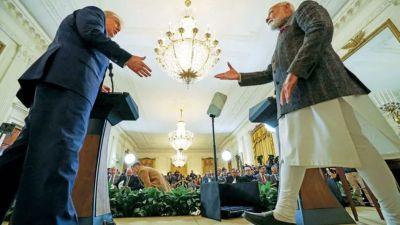Kannada actress Ranya Rao seeks statutory bail in gold smuggling case at the end of 60-day DRI probe period
The DRI has not objected to the application for statutory bail by Rao, who was arrested at the Bengaluru International Airport on March 3, on her arrival from Dubai with 14.2 kg of gold worth.
 The quantum of gold smuggled has been estimated to be over 100 kg by the DRI in arguments in the High Court. (File Photo)
The quantum of gold smuggled has been estimated to be over 100 kg by the DRI in arguments in the High Court. (File Photo)Kannada actress Ranya Rao, who was arrested in an alleged gold smuggling case in March, has moved court for statutory bail by citing that the Directorate of Revenue Intelligence (DRI) has not filed a charge sheet 60 days after her arrest.
Ranya Rao, stepdaughter of senior Karnataka IPS officer Ramachandra Rao, filed an application before a special court for economic offences on May 5 under Section 187 (3) of the Bharatiya Nagarik Suraksha Sanhita that allows bail to an accused person at the end of the investigation period, which is 60 days in Customs Act cases.
The DRI has not objected to the application for statutory bail by Rao, who was arrested at the Bengaluru International Airport on March 3, on her arrival from Dubai with 14.2 kg of gold worth ₹12.56 crore allegedly strapped on her body.
The DRI has, however, indicated to the special court that investigations are still underway and a prosecution complaint would be filed in due course.
It has also indicated to the court that the Central Government has invoked the Conservation of Foreign Exchange and Prevention of Smuggling Activities (Cofeposa) Act, 1974, against Ranya Rao and two associates to keep them under detention for a year.
The special court has posted the plea for statutory bail for orders on May 12.
Rao’s associate and Telugu film actor Tarun Konduru Raju alias Virat Konduru, 36, was arrested on March 9, and Sahil Sakariya Jain, 26, the hawala dealer who helped the actors sell the smuggled gold, was arrested on March 26.
The grant of statutory bail for Ranya Rao at the end of 60 days for investigations by the DRI will not impact the detention of the actor and her associates since they have been detained under the Cofeposa Act through an order passed by the Central Government in April, DRI sources said.
Earlier, the Karnataka High Court, the sessions court, and the special court for economic offences had rejected the bail pleas filed by the two actors during the period of investigations by the DRI.
\The DRI has indicated the role of a larger smuggling network during the bail proceedings of the actors.
“Unlike conventional crimes, which affect individuals or specific groups, economic offences have the potential to threaten the stability of the national economy. Economic offences are grave and they always pose a threat to the health of the economy of the country,” Justice Vishwajith Shetty of the Karnataka HC said in an April 26 order, rejecting the bail for the actors.
The High Court pointed to the huge quantity of gold that has been allegedly smuggled – over 100 kg according to the DRI arguments in the HC, and the extension of government facilities like VIP protocols to Ranya Rao to reject bail.
The DRI investigations after Rao’s arrest revealed that she was allegedly assisted in passing the gold through Dubai customs by Tarun Konduru Raju by using his US citizen credentials, and that the smuggled gold was handed over to Sahil Jain in India for disposal.
The DRI has claimed to have found evidence, through customs declarations and investigations of the accused, of 11 of 34 trips undertaken by the actors to Dubai in 2024-25 involving gold smuggling.
The quantum of gold smuggled has been estimated to be over 100 kg by the DRI in arguments in the High Court.
An order for the detention of Rao and her associates under the Cofeposa Act was issued by the Central Economic Intelligence Bureau of the Ministry of Finance on April 22 to prevent their involvement in further gold smuggling activities.
The Cofeposa Act detention order effectively means that Rao, Konduru and Jain will remain in prison for up to a year, even if they are granted statutory bail at the end of the 60-day investigation period in Customs Act cases.







